Car Leaks
Have you noticed any leaks underneath your car? Whether it's new or old, your car might experience leaks. New cars generally have minimal risk of leaks since they are new and intact, whereas older machines are more prone to leaks due to the wearing out of various components. Please note that not all leaks signify faults in a car.
Spotting Leaks.
To proactively identify leakages before they result in damage, perform regular random checks on your car. If possible, conduct daily checkups. For example, you can move your car back a step and carefully inspect the ground where it was previously parked. If you observe any leaks beneath your car, kindly ascertain the type of fluid that is leaking. If not sure, please consult an expert.
Possible Leaks.
-
Engine Oil.
The color of the engine oil could be black or brown, which depends on how well your car is maintained. Engine oil leakage signifies a fault in the engine, and therefore, the engine should be inspected to identify the source of the leakage.
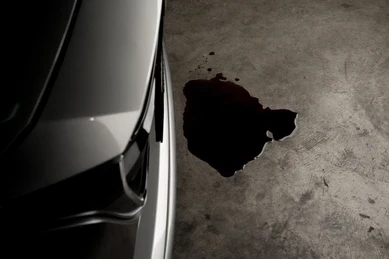
-
Faulty Oil Filter.
Leakage from the Oil Filter gasket may occur due to it being loose or worn out. After identifying the cause of the Oil Filter gasket leakage, you can either tighten it or replace it if it's worn out. Replacement should be done in accordance with the manufacturer's specifications.
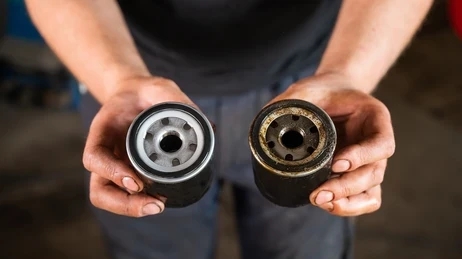
-
Oil Pump Gasket.
Sometimes, an external pump can be attached to the engine block with the aid of bolts and a gasket. Overtime, these bolts and gasket may loosen or wear out,necessitating adjustment or replacement. Inadequate oil can damage the oil pump, causing it wear out sooner than expected.
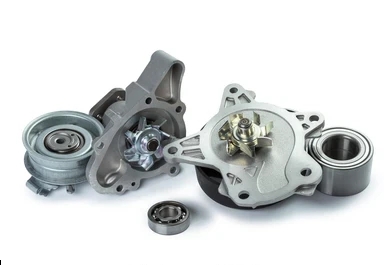
-
Damaged Oil Pan Gasket.
This is the seal between the Oil Pan and the engine block. This seal wears out with time due to pressure, temperature changes, and vibrations. The bolts can also loosen, causing leakage. This issue can be solved by replacing the worn-out Oil Pan Gasket with a new gasket or tightening the loose bolts.
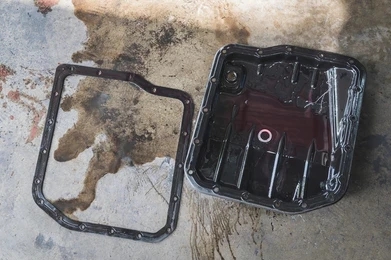
-
Cover Gasket.
This rubber seal prevents oil leakage between the valve train components and the rest of the engine, while also retaining the oil used for lubricating those components.
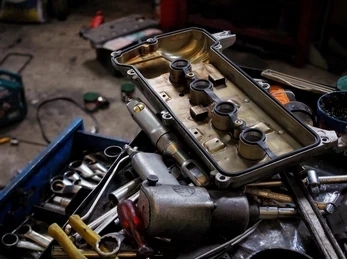
What are the symptoms of a bad cover gasket?
Signs of a faulty Cover Gasket include:
- Smell of burning oil.
- Smoke from the bonnet when the engine is running.
- Oil Pressure Warning indicator may appear on the dashboard.
-
Power Steering Fluid.
Did you notice a reddish-like fluid under your car? Your car could be leaking power steering fluid. This might be caused by a faulty or worn-out steering rack, or a ruptured pipe that channels the power steering fluid. You should get it checked out to be sure of the problem so it can be fixed.
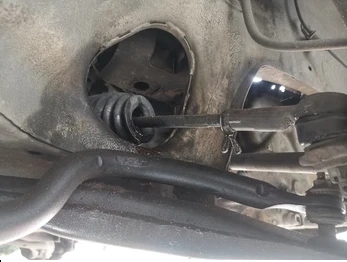
-
Automatic Transmission Fluid.
Automatic Transmission and Power Steering fluids are similar in some cases, with the same fluid being used for both purposes. When you notice a reddish-like fluid spillage underneath your car, particularly on the gearbox side or between the gearbox and the engine, it is likely that your car's gearbox seals are worn out and need to be replaced.
-
Coolant.
Coolant or Antifreeze is typically reddish or green in color. Leaking coolant could result from a ruptured pipe or a damaged radiator. It could also be a sign of a faulty or nonfunctional water pump. When you notice its leakage, please have your car checked to prevent further damage, as the car could experience overheating problems.
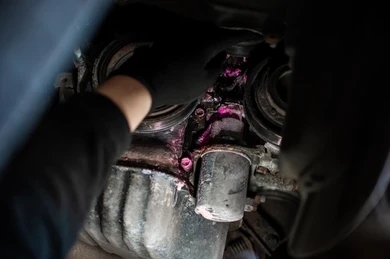
-
Brake Fluid.
If you suspect that your car is leaking brake fluid, you should conduct regular checks around the master cylinder, brake linings and drums, and generally around the car's wheels. Brake fluid leakage can pose a serious risk to the lives of both the car's occupants and other road users, and it should be repaired as soon as possible.
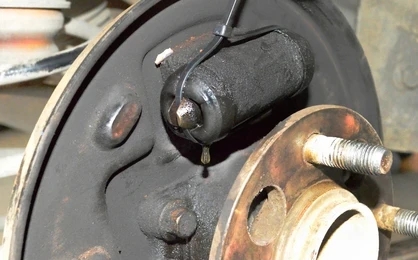
-
Fuel Leakage.
Fuel leakage is incredibly hazardous and can be very expensive to repair. It is dangerous because it can lead to a potential fire or explosion given that petrol is highly flammable. Fuel leaks can occur due to various reasons, such as a damaged fuel tank, a malfunctioning fuel filter, compromised fuel lines, or a broken gas cap.
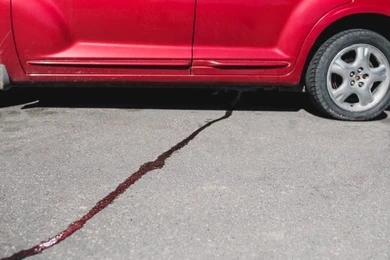
-
Wiper Fluid Leakage.
The windscreen cleaner fluid might leak if its tank is damaged, or there could be an issue with the pipes.
-
Air Conditioner.
It is normal for your car's AC to leak water, especially on a sun-scorching day when you turn the AC to full blast. The car's AC is designed in a way that allows water to drain from the vehicle. It works by extracting humidity from the air which then undergoes condensation, forming water that is later drained.
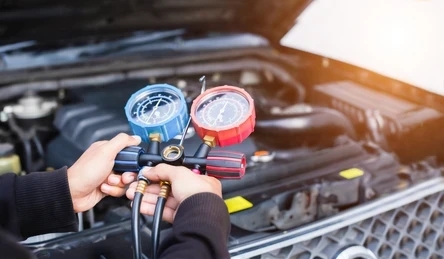
Conclusion
Regular check-ups are important for your car. You can establish a norm of always inspecting your car, regardless of your location, before driving off. This practice will help you not only to promptly identify any leakages but also scratches and dents. In case of leakage, begin by confirming which fluid is leaking before considering repairs. While certain leaks can be addressed through DIY methods, others need the intervention of a professional. It is advisable to fix any leakage as soon as possible to prevent further damage.